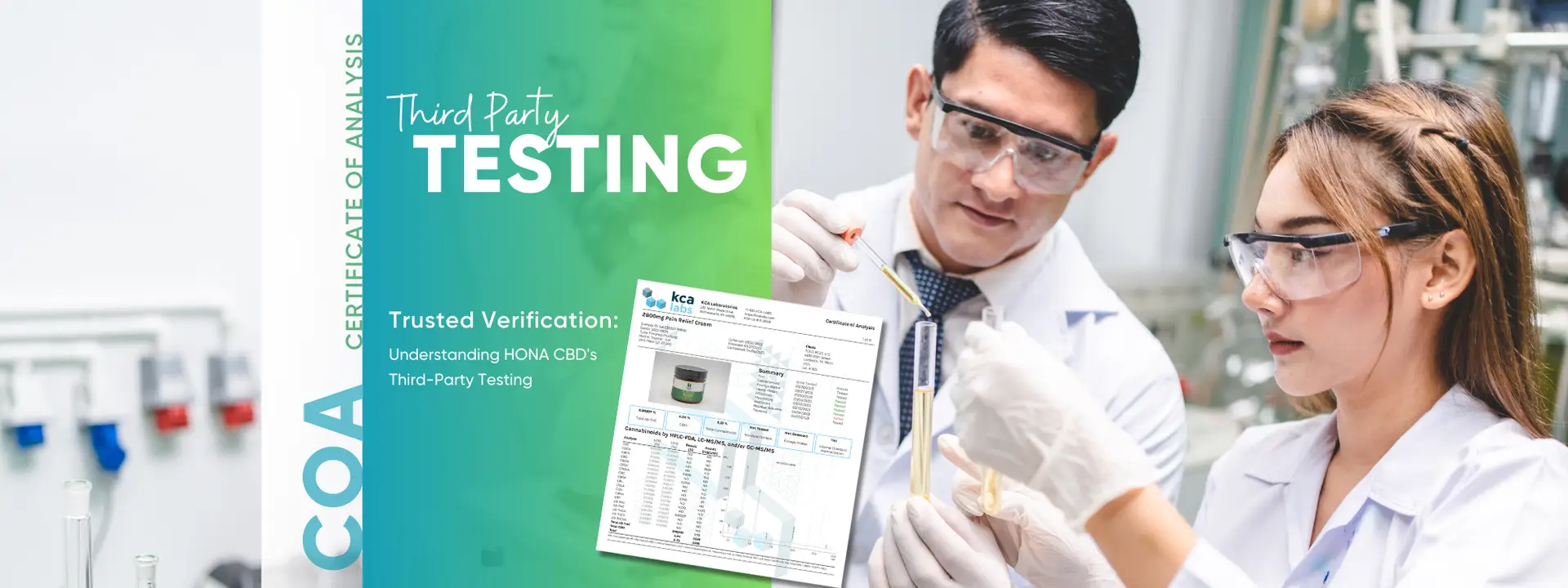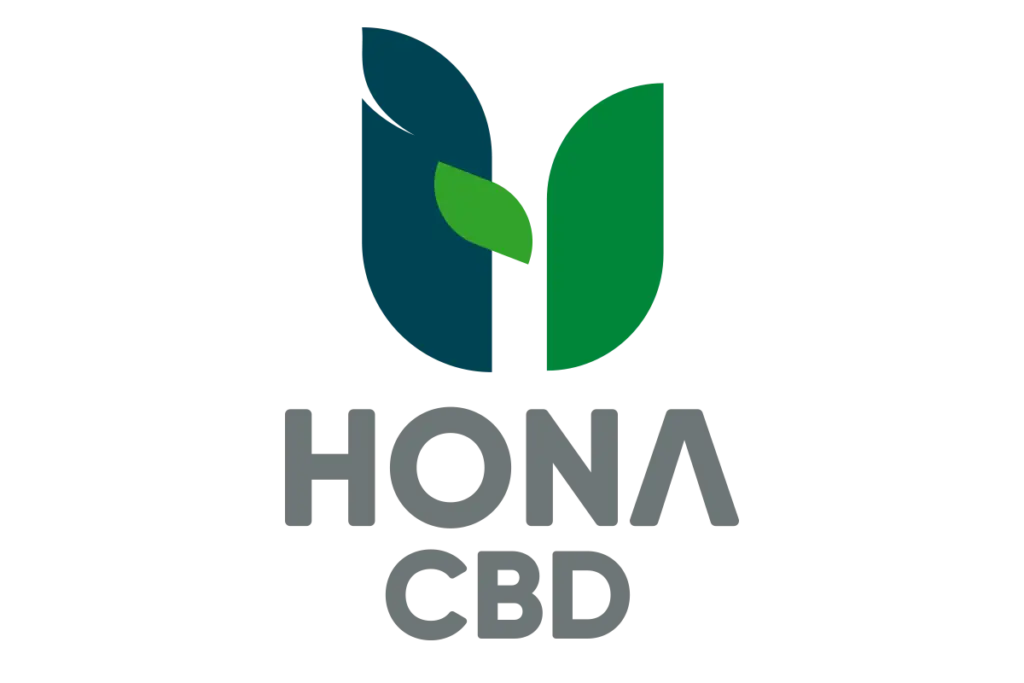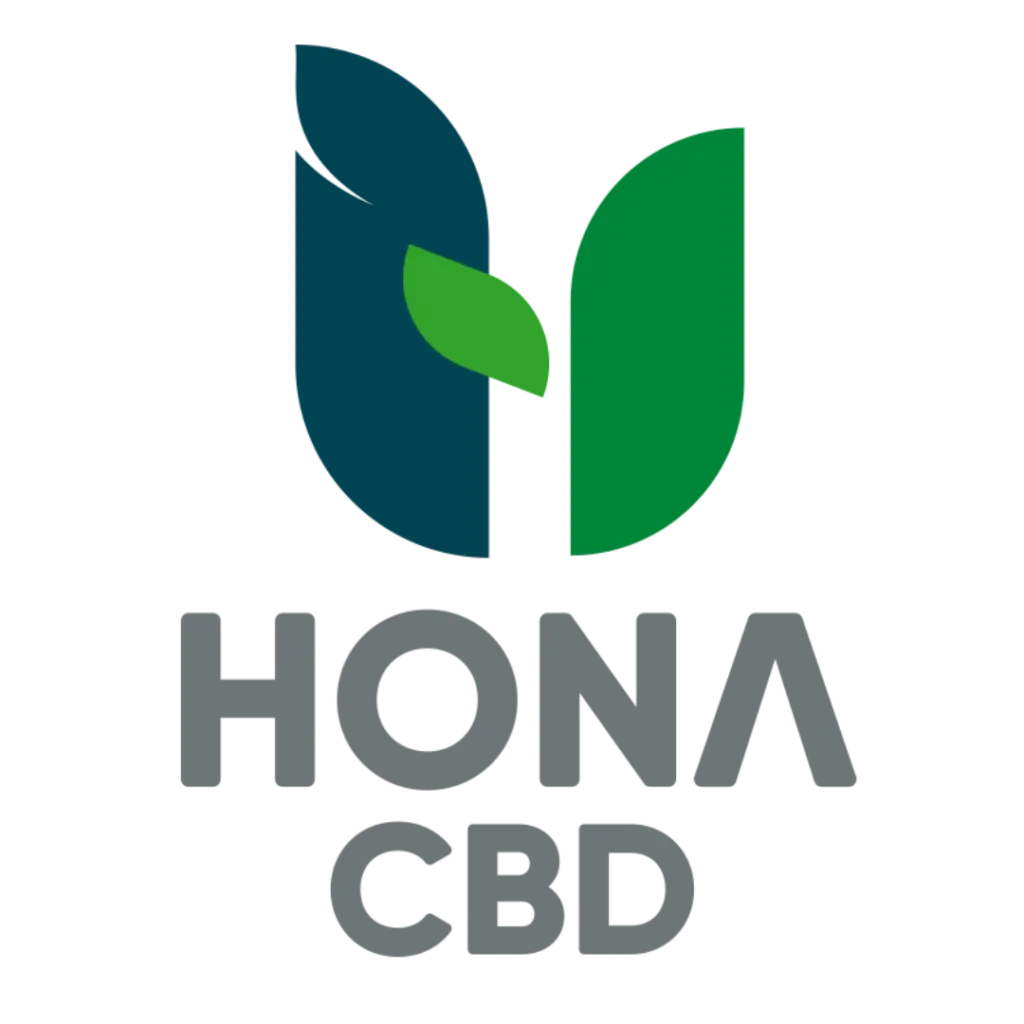

Certificate of Analysis (COA)
Third-Party Laboratory Reports, officially referred to as Certificates of Analysis (COAs), serve as the primary safeguard in the CBD sector to protect consumers from incorrectly labeled or counterfeit products. Our lab partner, Confident Cannabis, provides these reports, which include crucial information about the CBD item you’re considering. These data points allow us to confirm the safety and efficacy of our hemp, while also giving you the tools to ensure you’re receiving the quality you expect.
Third-party testing is essential because it ensures safety, transparency, and confidence. It confirms the product’s purity, verifies the concentration of CBD and other cannabinoids, and ensures there are no harmful contaminants. Third-party testing refers to the process of having a neutral and independent laboratory test and analyze a product to verify its quality, safety, and compliance with specific standards or regulations. In the case of CBD (cannabidiol) products, third-party testing is crucial for several reasons.
COA Search
Search for a Certificate of Analysis on our products by entering the Lot #, Batch ID, or Product ID:
How To Use Search Reports
- Locate the Lot # located on the bottom of your HONA CBD product.
- Enter the Lot # in the searchable field.
- Reference the image as an example. (Enter: 2022-0824M)
- Click the “Search Reports” button.
- The search results will generate an overview of the COA Test that pertains to the product Lot # you entered.
- Below the COA test result overview there will be a button to allow you to download the test in a PDF format.
- Feel free to hit the “download” button to generate a PDF copy of the COA for your records.

Why Third Party Testing?
Third-party testing is essential for HONA CBD to ensure product quality, safety, compliance with regulations, and to build trust with you the consumer. It provides objective verification of the product’s contents and helps protect consumers from potential health risks associated with low-quality or contaminated CBD products.
Quality Assurance
Transparency & Credibility
Compliance with Regulations
Consumer Safety
Building Trust & Confidence
Understanding HONA CBD's Third-Party Testing
COA (Certificate of Analysis) and third-party lab tests are both essential documents that provide information about the quality, potency, and safety of CBD products. However, they differ in their source and purpose:
- Certificate of Analysis (COA): A COA is a document provided by the manufacturer or seller of a CBD product. It contains detailed information about the specific batch of the product you are considering purchasing. The COA is usually conducted by an in-house or internal laboratory operated by the manufacturer. It provides important data related to the product’s composition, including the levels of cannabinoids (such as CBD and THC), terpenes, and other compounds.
Key points consumers can understand from a COA:
- Cannabinoid profile: The COA will list the amounts of different cannabinoids present in the product, particularly CBD and THC, as well as other minor cannabinoids.
- Terpene profile: Terpenes are aromatic compounds that contribute to the product’s aroma and may have potential health benefits.
- Batch-specific information: Each COA corresponds to a specific batch of the product, so you can see the unique characteristics of the particular item you are considering buying.
- Third-Party Lab Test: A third-party lab test, also known as independent lab testing, involves sending product samples to an external and neutral laboratory for comprehensive analysis. The laboratory is not affiliated with the manufacturer or seller and operates independently. Third-party lab tests are considered more reliable and objective because there is no bias or conflict of interest involved in the testing process.
Key points consumers can understand from a third-party lab test:
- Unbiased results: Since the testing is conducted by an independent laboratory, you can have confidence that the results are free from any potential manipulation or bias.
- Verification of claims: Third-party lab tests validate the accuracy of the manufacturer’s claims regarding the product’s potency, purity, and safety.
- Contaminant screening: The lab test will check for the presence of harmful contaminants such as pesticides, heavy metals, residual solvents, and microbial contaminants.
- Compliance with regulations: Third-party lab tests help ensure that the product complies with relevant regulations and standards set by regulatory authorities.
While both COAs and third-party lab tests offer valuable information about our HONA CBD products, the key difference lies in their source and objectivity. COAs are provided by the manufacturer and offer batch-specific details, while third-party lab tests are conducted by independent laboratories and provide unbiased verification of product quality, safety, and compliance. For consumers, relying on third-party lab test results can instill greater confidence in the product’s quality and help make informed decisions when choosing CBD products.

